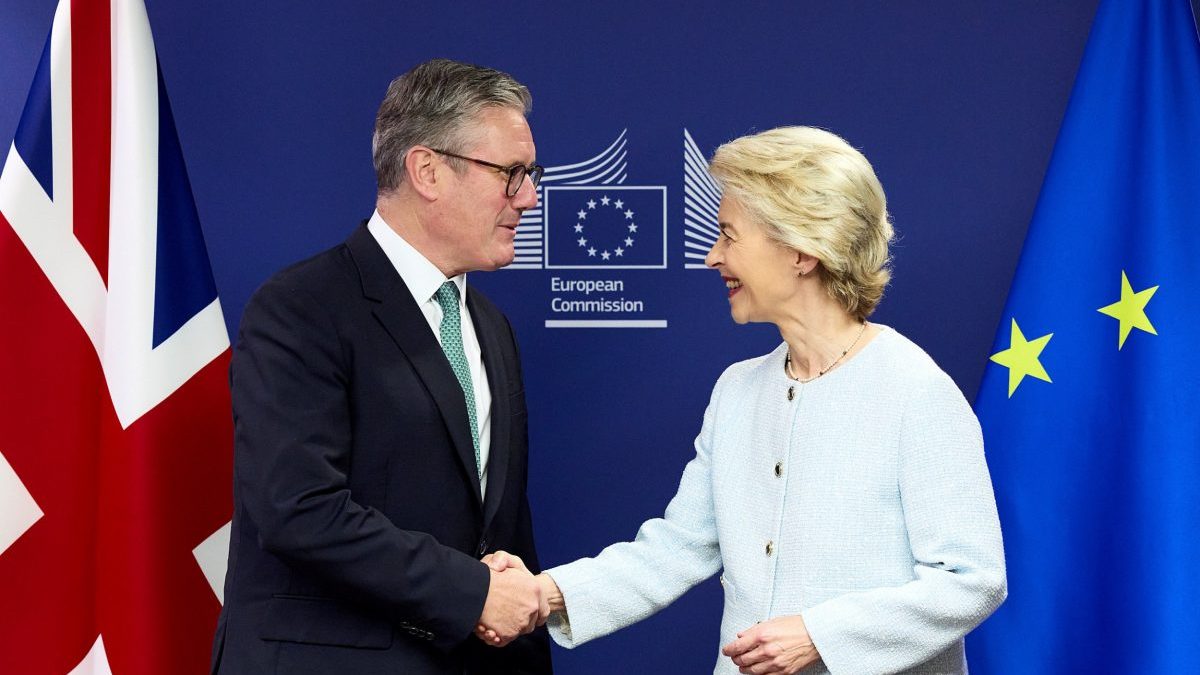Minister tells The i Paper the deal with Brussels will ‘boost British businesses and make trading food with our biggest market both cheaper and easier’
Meat is set to be cheaper after ministers scrapped more planned post-Brexit checks on food from the EU following Sir Keir Starmer’s reset deal with Brussels.
The i Paper can reveal that the Government is cancelling planned extra border checks on live animal imports from the EU and specific animal and plant goods from Northern Ireland.
Britain has made the move after the Prime Minister agreed to align with EU agrifood (SPS) laws to strike a deal that will eliminate most of the checks on cross-border food trade, in a bid to bring down prices for supermarket shoppers and make life easier for businesses.
New FeatureIn ShortQuick Stories. Same trusted journalism.
It means that meat prices will no longer rise due to the required introduction of new checks after Brexit, as had been feared.
This will not affect the UK’s ban on live animal exports, introduced under so-called Brexit freedoms on regulation, which will remain in place.
Biosecurity minister Baroness Hayman said: “Our deal with the EU will boost British businesses as we cut cumbersome bureaucracy and make trading food with our biggest market both cheaper and easier.”
It comes after The i Paper revealed the UK would scrap planned checks on fruit and vegetables imported from the EU following Starmer’s deal.
Some live animals imported from the EU will continue to be inspected at their destination, based on risk factor, while some of the goods arriving from Ireland will need paperwork in the form of pre-notification and certification.
The Government said it would continue to carry out risk-based surveillance of imports and review the suspension of the checks on an ongoing basis to ensure Britain’s biosecurity remains intact.
While Starmer and European Commission President Ursula von der Leyen agreed in principle to strike an SPS deal in May, the detail still needs to be thrashed out in negotiations.
The UK wants the agreement to come into force well before the next election, due in 2029, so that voters feel the impact of cheaper and more widely available EU produce.
SPS is the most politically contentious area because it will require the Government to commit to “dynamic alignment”, with the UK automatically adopting many of the same food and agriculture regulations as the EU, which Brexiteers argue will damage British sovereignty.
Ministers are nevertheless planning to introduce legislation to write these arrangements into law in the coming months, and it is expected to go into the statute book before the next King’s Speech, expected early next year.
There are some suggestions that the EU may demand a more expansive youth mobility scheme – which the UK is resisting – as the price of a rapid agreement on British priorities such as SPS.
The SPS deal was the centrepiece economic offer in Starmer’s reset agreement in May, and closer ties with the continent are seen by senior ministers, including Rachel Reeves, as a key part of plans to ramp up growth and end the spiral of ever-higher taxes in order to fill Budget black holes.

